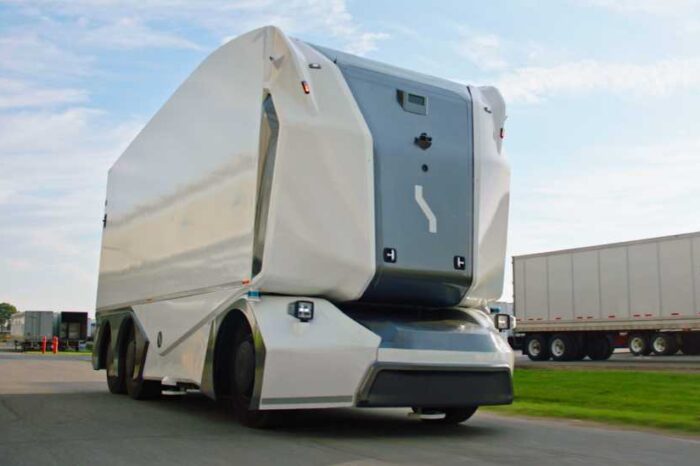AI chip startup d-Matrix raises $275M at $2B valuation to challenge Nvidia’s grip on AI inference

Santa Clara-based AI chip startup d-Matrix has raised $275 million in Series C funding, catapulting the company to a $2 billion valuation and signaling a major shift in the battle for AI inference dominance, the company announced Wednesday. The round was backed by some of the biggest global investors—including Microsoft, sovereign wealth funds from Qatar and Singapore, and returning backers Temasek and Bullhound—bringing d-Matrix’s total funding to $450 million.
“D-Matrix Corp., a Microsoft Corp.-backed AI chip startup, raised $275 million from new investors including Qatar Investment Authority and Singapore’s EDBI, valuing the company at $2 billion. The funding round was co-led by European technology investor BullhoundCapital, Triatomic Capital, and Singapore state investor Temasek,” Bloomberg reported.
The investment comes at a moment when hyperscalers are feeling the strain of AI’s runaway costs. As models like ChatGPT grow larger, the price of running them—especially during inference, when models generate real-time responses—has become one of the industry’s most expensive bottlenecks. d-Matrix believes it has the answer: a new class of silicon built specifically for inference, engineered to deliver high performance with lower latency, smaller power draw, and dramatically reduced data movement.
This latest milestone marks another leap for a company that’s been steadily climbing since its founding in 2019. Just a year ago, TechStartups reported that d-Matrix had begun shipping its first AI chips, tailored for generative AI applications like chatbots and video generators. That moment followed a $110 million funding round, which fueled development of the company’s early inference processors and partnerships with major hardware players, including Super Micro Computer, which integrated d-Matrix chips into its servers.
Back then, co-founder and CEO Sid Sheth said the company was focused on making AI processing “fast, efficient, and sustainable” by bringing computation closer to memory. That same principle now drives its flagship Corsair accelerators, which combine compute and memory in a single architecture—an approach known as digital-in-memory compute. Traditional GPUs, including Nvidia’s, move data constantly between memory and processing cores, consuming huge amounts of energy. By eliminating much of that movement, d-Matrix chips promise lower power consumption and better performance per watt, a key advantage for hyperscalers trying to control their energy bills.
“From day one, d-Matrix has been uniquely focused on inference. When we started d-Matrix six years ago, training was seen as AI’s biggest challenge, but we knew that a new set of challenges would be coming soon,” said Sid Sheth, CEO and co-founder of d-Matrix. “We predicted that when trained models needed to run continuously at scale, the infrastructure wouldn’t be ready. We’ve spent the last six years building the solution: a fundamentally new architecture that enables AI to operate everywhere, all the time. This funding validates that vision as the industry enters the Age of AI Inference.”
The Series C funds will accelerate manufacturing, expand software support, and scale customer pilots across cloud and enterprise environments. Early adopters haven’t been disclosed, but Microsoft’s involvement through its M12 venture fund has sparked speculation that Azure could become one of the first large-scale users.
Founded by veterans of Xilinx and Synopsys, d-Matrix has built an ecosystem that combines hardware, networking, and software. Its JetStream fabric enables seamless scaling across data centers, while the Aviator software stack optimizes generative AI workloads from edge to cloud. The company says its mission is to break through the limits of latency, cost, and energy that define today’s AI infrastructure.
For investors, the timing couldn’t be better. Analysts project that global spending on AI inference will surpass training budgets by 2026, with the AI chip market expected to hit $200 billion annually by 2027. That shift has ignited a race to deliver more efficient inference architectures—and positioned startups like d-Matrix, Groq, and Cerebras as credible alternatives to Nvidia’s dominant GPUs.
As one market analyst told Bloomberg, Microsoft’s continued backing “suggests compute diversification beyond mainstream accelerators,” a sign that even the biggest players are looking for ways to balance performance and cost. Nvidia still controls much of the training and inference landscape, but the rise of companies like d-Matrix shows that diversification is no longer optional.
The startup’s rise from early prototypes to a billion-dollar valuation underscores a deeper change sweeping through AI infrastructure. As energy demands soar and governments tighten carbon targets, data centers are under pressure to become more efficient. d-Matrix’s chips could cut power consumption in inference workloads by as much as 30 percent, according to industry benchmarks—an improvement that could save hyperscalers millions each year.
Competition is heating up, with chipmakers racing to define the next generation of AI compute. But d-Matrix’s clear focus on inference—where the real economic battle of AI will be fought—gives it a sharp edge. With $450 million in funding, global investors on board, and real deployments in sight, the company has gone from a promising startup to a serious contender in the AI hardware race.
If its technology delivers on its promise, d-Matrix could help redefine how enterprises run large-scale AI—cheaper, faster, and far more sustainable. And in an industry dominated by giants, that kind of disruption may be exactly what keeps the future of AI computing in motion.




